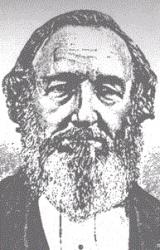Planning worship?
Check out our sister site, ZeteoSearch.org,
for 20+ additional resources related to your search.
- |
User Links
Search Results
I sing a song which doth belong
Meter: 8.6.8.6 Appears in 25 hymnals Hymnal Title: The Southern Harmony, and Musical Companion (New ed. thoroughly rev. and much enl.) Lyrics:
1.
I sing a song which doth belong to all the human race,
Concerning death, which steals the breath, and blasts the comely face;
Come listen all unto my call, which I do make today
For you must die as well as I, and pass from hence away.
2.
No human power can stop the hour, wherein a mortal dies;
A Caesar may be great today, yet death will close his eyes:
Though some do strive and do arrive to riches and renown,
Enjoying health and swim in wealth, yet death will bring them down.
3.
Though beauty grace your comely face, with roses white and red,
A dying fall will spoil it all, for Absalom is dead:
Though you acquire the best attire, appearing fine and fair,
Yet death will come into the room, and strip you naked there.
4.
The princes high and beggars die, and mingle with dust,
The rich, the brave, the negro slave, the wicked and the just:
Therefore prepare to meet thy God, before it be too late.
Or else you'll weep, lament and cry, lost in a ruined state.
Used With Tune: AN ADDRESS FOR ALL
I sing a song which doth belong
NORTH CAROLINA
Appears in 1 hymnal Composer and/or Arranger: William Hauser Hymnal Title: The Shenandoah Harmony Tune Key: G Major Used With Text: North Carolina
NORTH CAROLINA
AN ADDRESS FOR ALL
Meter: 8.6.8.6 Appears in 2 hymnals Composer and/or Arranger: Wm. Walker Hymnal Title: The Southern Harmony, and Musical Companion (New ed. thoroughly rev. and much enl.) Used With Text: I sing a song which doth belong
AN ADDRESS FOR ALL
I'll sing a song which doth belong
Hymnal: A Choice Collection of Hymns, and Spiritual Songs, designed for the devotions of Israel, in prayer, conference, and camp-meetings...(2nd ed.) #112 (1831) Hymnal Title: A Choice Collection of Hymns, and Spiritual Songs, designed for the devotions of Israel, in prayer, conference, and camp-meetings...(2nd ed.) Languages: English
I'll sing a song which doth belong
I'll sing a song which [that] doth belong
Hymnal: A Collection of Spiritual Hymns #209 (1876) Hymnal Title: A Collection of Spiritual Hymns Languages: English
I'll sing a song which [that] doth belong
I sing a song which doth belong
Hymnal: A Selection of Hymns, from the Best Authors #123 (1817) Hymnal Title: A Selection of Hymns, from the Best Authors Languages: English
I sing a song which doth belong
Daniel Davis
Hymnal Title: High Desert Harmony Composer of "JEMEZ" in High Desert Harmony
Daniel Davis
William Hauser

1812 - 1880 Hymnal Title: The Shenandoah Harmony Arranger of "NORTH CAROLINA" in The Shenandoah Harmony The Reverend Dr. William Clarke Hauser was a minister, medical doctor, teacher, composer, and music publisher. He was born December 23, 1812 in Bethania, Forsyth County, North Carolina, USA, and died September 15, 1880 in Wadley, Jefferson County, Georgia. He was the son of Martin Hauser and Leah Billiter.
William Hauser united with the Methodist Church in 1827 and was licensed to preach in 1834 and was a circuit riding preacher for two years. On March 23, 1837, he married Eliza M. Renshaw (1813-1880), and they had three children: Carolina Elizabeth Hauser Parker (1838-1926), William Clarke Hauser (1844-1919), and Victor McLandhton Hauser (1847-1919). William Hauser raised his family in New Orleans, LA and Victor Hauser did the same in Ogden, Utah. William Hauser attended Henry College in Virginia, beginning in 1839. After moving to Georgia in 1841, he began the study of medicine. He later taught at Oglethorpe Medical College in Savannah, GA.
Hauser made two significant contributions in the area of shape note music: (1) The Hesperian Harp: a Collection of Psalm and Hymn Tunes, Odes and Anthems, published in four shapes at Philadelphia by T. K. Collins, Jr. in 1848; and (2) Olive Leaf: A Collection of Beautiful Tunes, New and Old; the Whole of One or More Hymns Accompanying Each Tune, for the Glory of God, and the Good of Mankind, published in seven shapes at Wadley, Georgia, by Hauser and Benjamin Turner in 1878. The Hesperian Harp was probably the largest shape note tune book of its day, containing 552 pages of music, including 36 songs composed by Hauser. His Olive Leaf was produced in the seven shape notes of Jesse B. Aikin and contained only eight of his compositions from the older book. But his new compositions numbered forty-eight. The Moravian Music Foundation calls Dr. William Hauser "Appalachia's most significant contribution to American music."
Dr. Hauser died on September 18, 1880. His last words were ″I feel that my work on earth is done, and there is not a cloud between me and God.″ William and Eliza Hauser are buried on their plantation, Hesperia, near Wadley in Jefferson County, Georgia.
--en.wikipedia.org/wiki/
William Hauser
William Walker

1809 - 1875 Person Name: Wm. Walker Hymnal Title: The Southern Harmony, and Musical Companion (New ed. thoroughly rev. and much enl.) Composer of "AN ADDRESS FOR ALL" in The Southern Harmony, and Musical Companion (New ed. thoroughly rev. and much enl.)
William Walker


 My Starred Hymns
My Starred Hymns


